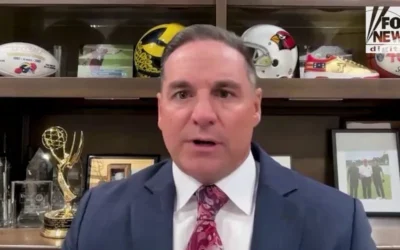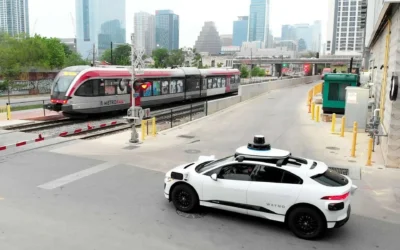Introduction
In the ever-evolving landscape of electric vehicles (EVs), two titans of industry, Elon Musk and Jeff Bezos, are engaged in a battle for innovation supremacy. As Tesla gears up for its highly anticipated earnings call, the automotive world is abuzz with the revelation of a new SUV, reportedly backed and developed by Bezos, that promises to redefine what consumers expect from EVs. This article delves into the implications of these developments, exploring both companies’ strategies and the future of electric mobility.
The Tesla Earnings Call: What to Expect
Tesla’s quarterly earnings calls have become critical events for investors, analysts, and automotive enthusiasts. Scheduled for later this week, this call is eagerly anticipated as stakeholders seek insights into the company’s financial health, production targets, and future strategies. With the backdrop of global economic pressures, supply chain issues, and increasing competition in the EV market, Tesla’s performance is under intense scrutiny.
Analysts are particularly interested in several key metrics:
- Revenue Growth: After impressive growth in the past year, investors will be looking for continued momentum, especially as competition heats up.
- Delivery Metrics: Average delivery times and total vehicle deliveries for the quarter will be closely watched to gauge how well Tesla is managing supply chain challenges.
- Profit Margins: As Tesla scales production and navigates new markets, profit margins will be a point of concern, particularly with rising material costs.
A New Player in the EV Arena: The Slate SUV
As Tesla prepares to unveil its earnings, another significant development is capturing attention: the new Slate SUV, a vehicle that has generated considerable buzz for its innovative design and technological advancements. Backed by Jeff Bezos, this new EV has been described as having the ability to change shapes like a Transformer, a feature that could fundamentally alter consumer expectations.
The Slate SUV’s unveiling seems meticulously timed to coincide with the Tesla earnings call, positioning it as a direct competitor to Tesla’s model lineup. The vehicle’s flexible structure allows it to adapt its form based on the driving scenario, potentially providing enhanced aerodynamics, storage, and function. The implications of such a feature could set a new precedent in the EV market, prompting Tesla and other manufacturers to accelerate their development of similarly advanced vehicles.
Bezos vs. Musk: The Billionaire Battle
The rivalry between Bezos and Musk has been well-documented, with both men leading the charge in their respective ventures—Tesla for electric vehicles and SpaceX for aerospace, with Bezos countering that with Blue Origin for space exploration. However, their interests are now colliding in the EV sector.
In the automotive domain, these titans have established a competitive battleground that extends beyond just vehicles. From customer service experiences to innovations in battery technology and AI, the strategies they adopt will not only impact their own companies but can also reshape the entire industry.
Market Reactions and Implications
Market reactions to the announcement of Bezos’ Slate EV have been swift. Tesla stocks tend to see fluctuations based on competitive news, and this new entry into the marketplace presents potential challenges. Investors are keen to understand how Tesla plans to respond to the Slate SUV and subsequent initiatives from Amazon and its founder.
Bezos’ involvement in automobile technology also signals a possible long-term commitment to the sector amid rising environmental awareness and demand for greener technologies. The holistic EV market is expected to grow significantly over the next decade, and strategic collaborations potentially between automotive and tech sectors could bolster security and efficiency.
Consumer Sentiment and the Future of EVs
Consumer sentiment around electric vehicles is becoming increasingly polarized, with many seeking innovative features while also assessing brand loyalty. Events such as the anticipated Tesla earnings call and the unveiling of the Slate SUV could tip the scales in favor of one company or another based on consumer perception and product capabilities.
As consumers grow more discerning, they will be drawn to brands that embody their values—whether it be innovation, luxury, performance, or sustainability. Both Tesla and Bezos’ startup represent significant temptations for consumers eager for new technology. Tesla’s early lead is acknowledged, yet Bezos’ entry could redefine competition dynamics and consumer expectations.
Conclusion
The automotive industry is witnessing a fascinating pivot of dynamics as competitive spirits heighten between groundbreaking ideas, embodied by Elon Musk and Jeff Bezos. The upcoming Tesla earnings call will provide crucial insights into how Musk plans to navigate this storm and maintain his lead amid rising challenges. At the same time, Bezos’Slate SUV promises to usher in a new era of electric vehicle capabilities, encouraging everyone to rethink what is possible within this burgeoning sector.
Ultimately, the next chapter of this billion-dollar rivalry will not just be about who wins the short-term battle but who can shape the future of transportation through innovation, sustainability, and consumer engagement. As the billionaire battle unfolds, the winner will likely not just be defined by profits and losses but by the long-term impact on society and the environment.






